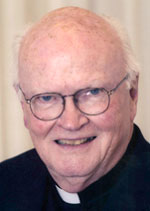There are more than 50 countries on the African continent. Almost 50 of them responded to U.S. President Barack Obama’s invitation to come to Washington in early August for the first-ever U.S.-Africa Leaders Summit focused on trade and economic development.
The continent has seen enormous progress over the past decade. The hope now is to encourage further progress on many fronts, especially economic development and food security.
Regrettably, the alarming Ebola breakout in several West African nations at the time of the summit dominated the attention of the television and print coverage of this meeting, and the economic development agenda received inadequate attention.
It is significant that many of the African heads of state came to the summit committed to dedicating 10 percent of their national budgets to agriculture. This commitment is intended to put African countries on track to the larger goal of cutting poverty and hunger in half by the end of 2015.
[hotblock]
Hunger is now typically called “food insecurity” in press reports. Call it what you will, it still refers to empty bellies and death by starvation. It represents a crisis of monumental proportions awaiting a response from all corners of the human community.
The basic cause of hunger is poverty, which, in simple terms, can be defined as “sustained deprivation.” That definition raises two questions: Deprived of what? And sustained by whom or by what?
Deprivation of food, income, shelter, health care and education come immediately to mind. And these deprivations can be said to be sustained by injustice, ignorance, prejudice, political instability and a whole range of circumstances that have to be addressed simultaneously on the local, national and international fronts.
The response, however, depends on a previous awareness of the problem and that’s why it is regrettable that Ebola deflected the spotlight from hunger in Africa.
The ultimate solution to the problem of hunger is the production of food in food-deficit nations. This is why the 10 percent commitment to agriculture made by the African leaders is important and why the willingness of advanced nations, like the U.S., to direct development assistance toward the production of food in the hungry nations is so important. Where production is impossible, trade and aid can help.
About 40 years ago, Arthur Simon, a young Lutheran pastor working with the poor in lower Manhattan, launched an anti-hunger movement called Bread for the World. It is a Christian citizens’ lobby based in Washington and driven by a conviction that it is possible to eliminate world hunger.
Bread for the World mobilizes the power of some 60,000 members, all U.S. citizens, to urge their government to do something to reduce world hunger. By focusing the attention of elected and appointed officials in the U.S. government on the problem of world hunger, Bread for the World effects change.
If you Google “Bread for the World,” you will see what can be done and how you can help. This is not direct food assistance; it is indirect influence on the centers of power that, in turn, can solve the problem.
You can become a Bread for the World member. Your parish can become a Bread for the World “covenant church.” One practical answer to the Scriptural question, “Lord, when did we see you hungry, and feed you?” (Mt 25: 37) is Bread for the World.
***
Jesuit Father Byron is university professor of business and society at St. Joseph’s University, Philadelphia. Email: wbyron@sju.edu.




Share this story